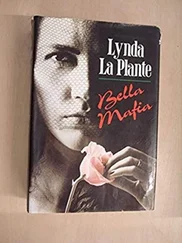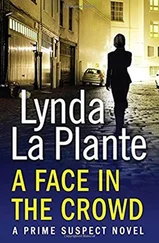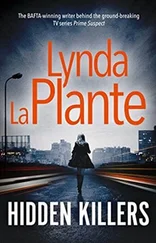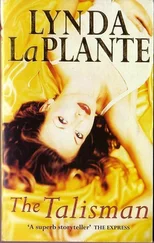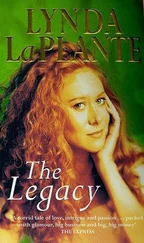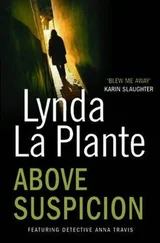Jane’s parents were caring and loving. The family lived in a smart flat in Maida Vale, and she had been given a good, solid upbringing in middle-class surroundings. Jane’s younger sister, Pamela, was the complete opposite of her – prettier, fashion-conscious, with scores of friends and very popular with the boys. Pam was bright but lazy and lacking motivation; she had left school when she was sixteen, with poor O-level grades and no real ambition in life. Eventually she found a junior position at the local hair salon where she washed hair, swept up and made hot drinks. Her only real aim in life was to meet someone reasonably well off, get married and have kids.
When Jane left school at eighteen, her parents had hoped that she would go on to university, obtain a good degree and become a teacher. However, Jane didn’t fancy student life, or more studying, so decided to take a year off. When her father, who had his own small accounting business, invited her to work for him as a secretary, she readily accepted. She settled in well, worked hard and was an asset to the company, even attending some evening classes at the Central London Polytechnic. After a year had passed Jane decided that she was happy where she was, to the delight of her father, who hoped to leave the company in his elder daughter’s capable hands when he retired.
A year later Jane felt that she needed to do something more challenging with her life than working in an office. She didn’t say anything to her parents as the last thing she wanted to do was upset them, especially her father to whom she was very close. She couldn’t remember the exact moment when she considered a change in her career path, but she knew that it stemmed from an article she had read in the newspaper about the Metropolitan Police and how the role of women within the organisation was changing. Women were finally allowed to join Mounted Branch, Traffic Units and even become dog handlers. The article also stated that A4 Women Branch, the all-female Police unit, was soon to be disbanded, with female officers being fully integrated on all shifts and in every department. Jane couldn’t put her finger on why the article had influenced her so much. She wasn’t a feminist, it wasn’t ‘a calling’, but rather an opportunity to pursue a career where she could stand on her own two feet and do something rewarding.
Jane would always remember the evening in early June, 1972, as she sat with her family around the dinner table, listening to Pamela harp on about how her days of doing menial tasks at the salon would soon be over. She was about to be trained as a stylist.
‘Well done, dear, you’re progressing up the ladder,’ Mrs Tennison said enthusiastically before turning to Jane. ‘And what about you, Jane, any more thoughts about going to university and becoming a teacher… or will you be waiting another year?’
‘I’m too old for university now, Mum, and I’ve never wanted to be a teacher.’
‘It’s all well and good working for your father, but you should have some ambition like Pam,’ was her mother’s immediate response.
It was now or never, Jane thought, as she took a deep breath and put down her knife and fork.
‘I do – and that’s why I’m going to join the Metropolitan Police.’
Her mother and sister laughed out loud.
Jane was incensed at their reaction. ‘It’s not a joke. I’m being absolutely serious… ’
The look of shock on their faces was far worse than she had expected.
‘ You what …? ’
Although she enjoyed working for her father, Jane explained, she wanted to become a police officer and felt that it would be a worthwhile and promising career with plenty of opportunities.
Her mother let out a long sigh. ‘You want to be a policewoman and wear those awful black uniforms? I’ve heard that all they do is menial work and look after children… If that’s what you want why not get married and have kids of your own, like Pam wants to do?’
Jane was surprised and upset by her mother’s reply. She didn’t want a heated argument, but she was determined to put her right.
‘I’m not like Pam, and things are changing in the police force. Women will soon be doing the same shift work and patrols as the men; everyone will be on an equal footing.’
‘You reckon?’ Pamela smirked.
Mrs Tennison was close to tears. ‘That’s even worse. You’ll be dealing with dangerous criminals, louts and drunks… Anything could happen to you. No, Jane, your father and I won’t have it. You’re much safer working in the office as his secretary. Isn’t she, dear?’ She looked to her husband for support, but he said nothing.
Pamela picked up her plate of food and stood up.
‘Where are you going?’ her father asked.
‘To finish my meal in the kitchen while you and Mum try to make Jane see sense,’ she said bluntly as she left the room.
Jane turned to her father. ‘I really enjoy working with you, Dad, and I’m sorry if you feel I’ve let you down, but I’m twenty-two now and being a policewoman is what I really want to do.’
Mrs Tennison tutted. ‘This is ridiculous nonsense. Tell her, dear, tell her it’s not on.’
Mr Tennison cleared his throat. ‘Are you sure, Jane? Your mother is right in some respects, it can be a dangerous job… Maybe you should take a bit more time to think about it?’
Jane dropped her bombshell. ‘I’ve already submitted the application forms. I’ve been asked to go for an interview in two weeks’ time.’
‘You went behind our backs!’ Mrs Tennison exclaimed. ‘How could you?’
‘No, I made the decision for myself knowing how you would react, Mum, and I’ve been dreading telling you. Why can’t you be happy and support me?’
‘How much will you be earning?’
Jane, trying to be vague, spoke quietly. ‘About £23 a week, I think.’
‘£23? That’s less than your father pays you!’
‘It’s not about the money, Mum, it’s about job satisfaction,’ Jane said, realising too late that her words might have upset her father, but he nodded in agreement.
Mrs Tennison was about to chastise Jane further when her husband interrupted by shouting for Pamela, who had been eavesdropping, to come and sit down at the table. He then spoke, his tone serious.
‘If Jane wants to be a policewoman it is her decision and we, together as a family, will support her.’
Mrs Tennison frowned as she looked at Jane. ‘Well, if you pass the interview and want to stand on your own two feet, then you can wash and iron your police shirts every night while I watch TV or read a book for a change.’
Pamela grinned. She and Jane had sometimes helped with the cleaning and cooking, but they had never washed or ironed clothes in their lives.
Jane took a sip of water. ‘I’ve been told that if I pass the interview I’ll start the residential course in September.’
‘Residential?’ Her mother looked forlorn.
‘I’ll do my training at Hendon but live in the women’s accommodation at Peto House in Marylebone. It provides all the necessary facilities for residents to use, canteen, washing machine, iron… ’
Pamela interrupted. ‘Can I have your room then?’
Jane shook her head, ‘No. The course is just sixteen weeks, Monday to Friday, live-in, with weekends free.’
Her mother forced a smile. ‘You’re only a couple of miles up the road then in Marylebone. Will you be coming home for supper?’
‘No, you have to sleep and eat on the premises.’
‘Could we visit you?’
Jane couldn’t believe that her mother wouldn’t let it drop.
‘I doubt that would be allowed. Now, can we please change the subject?’
‘Well, when I’m married with kids I’ll visit Mum and Dad as much as possible,’ Pamela said.
Читать дальше


